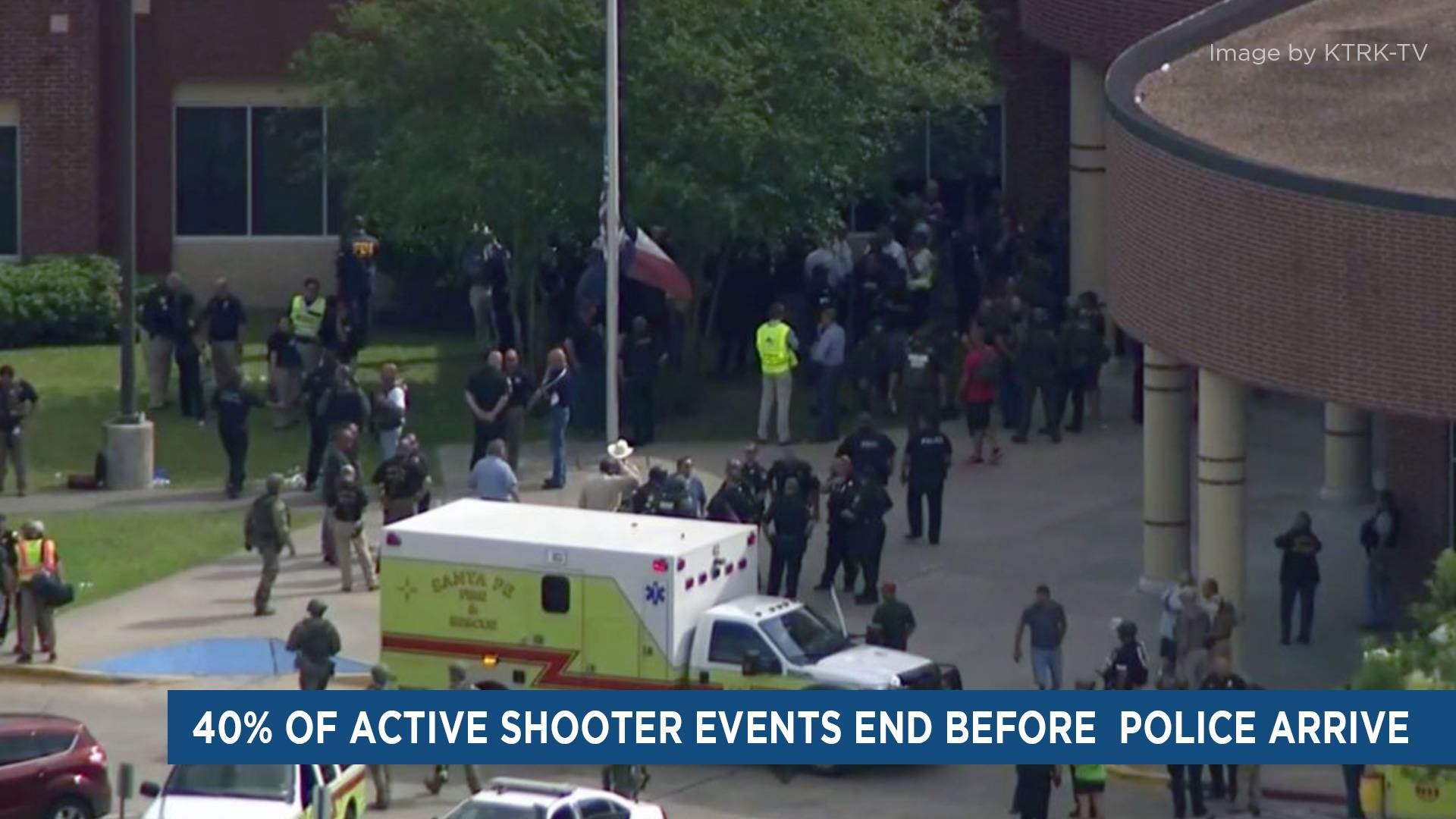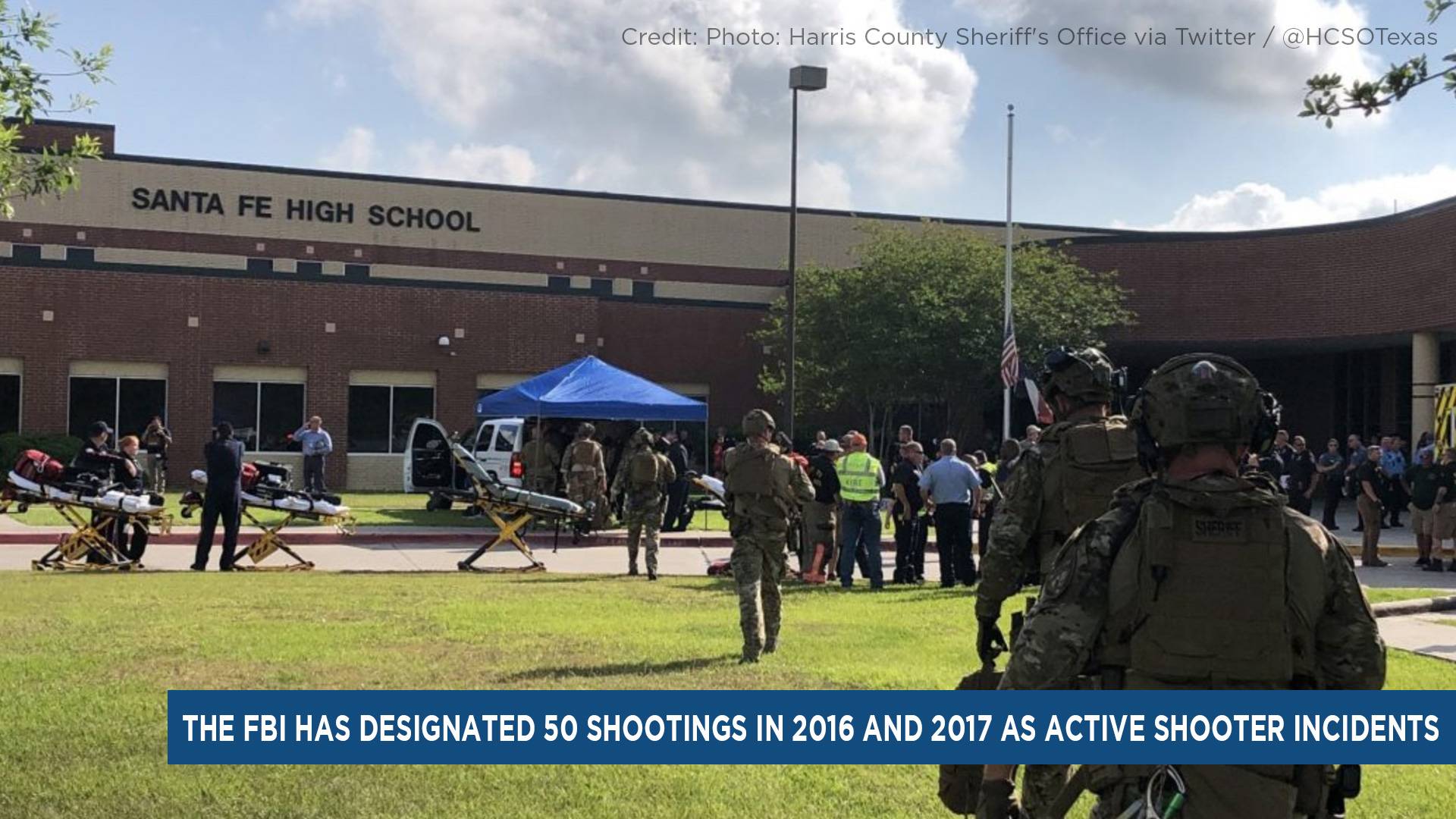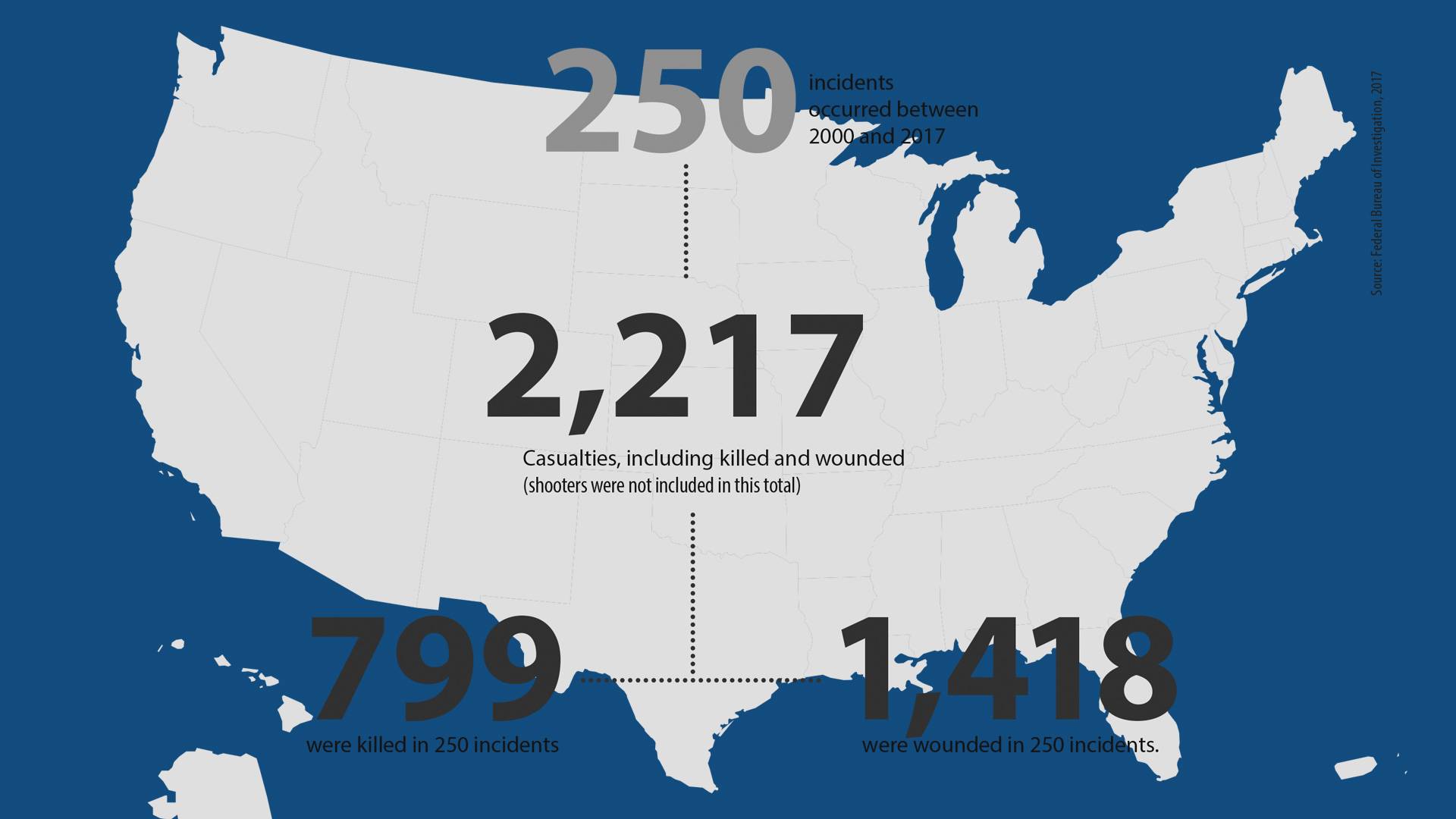
In March 2018, the Texas State University System Task Force for Active Attack Preparation (Task Force) was formed in response to regental and Chancellor concerns for the wellbeing of our campus communities. Component institutions nominated 15 Task Force members that included representatives from faculty, campus law enforcement, emergency management and administration. The Task Force members met multiple times in Austin, as well as completed safety audits on their individual campuses, which resulted in the creation of a training video, System policy recommendations and a virtual tool kit, to assist any campus looking for research-based best practices for developing their own emergency operations plans. The full Texas State University System policy can be viewed here.
In conjunction with the ALERRT Center at Texas State University, the Task Force has produced its first active attack video.
More about ALERRT:
The Advanced Law Enforcement Rapid Response Training (ALERRT) Center at Texas State University is the largest grant-funded research-based program at Texas State University. Since 2002, ALERRT at Texas State has been awarded more than $72 million in state and federal grant funding, and has trained more than 130,000 law enforcement and fire officials nationwide in dynamic, force-on-force scenario-based training. The program is operating on more than $22.7 million in state and federal grants, to provide training across the country. In 2013, the FBI partnered with the ALERRT Center at Texas State and named ALERRT the National Standard for active shooter response training. ALERRT.org
ALERRT has trained more than 250,000 civilians in our Civilian Response to Active Shooter Events (CRASE) Avoid-Deny-Defend awareness program. First responders and their agencies are frequently requested by schools, businesses, and community members for direction and presentations on what civilians can do if confronted with an active shooter event. The Civilian Response to Active Shooter Events (CRASE) course, designed and built on the Avoid, Deny, Defend (ADD) strategy developed by ALERRT in 2004, provides strategies, guidance and a proven plan for surviving an active shooter event. Topics include the history and prevalence of active shooter events, civilian response options, medical issues, and considerations for conducting drills.Beyond this, several major corporations have adopted the Avoid Deny Defend Civilian Response program, including Walmart (2.1 million employees), Kroger (443,000 employees) and others. Information about the Avoid Deny Defend program can be accessed at AvoidDenyDefend.org
Training Resources:
K-12 School Safety and Security Audit Toolkit
The K-12 Safety and Security Audit Toolkit offers guidance and job-aids for conducting ongoing safety and security assessments in K-12 school districts required under Texas Education Code §37.108. Audits should be an ongoing process with the aim of identifying hazards, threats, and vulnerabilities that might pose a danger to life or property and/or may interfere with a safe, secure and healthy environment. Toward that aim, this toolkit makes available the model process for conducting safety and security audits developed by the Texas School Safety Center, which includes guidance on forming an audit team, conducting safety assessments, developing a written report, protecting sensitive information, and reporting requirements.
https://txssc.txstate.edu/tools/he-toolkit/
REMS Guide For Developing High-Quality Emergency Operations Plans For Institutions Of Higher Education
As required by 37.108 of the Texas Education Code, public junior college districts shall adopt and implement a multi-hazard emergency operations plan for use in the district's facilities. This toolkit, provided by the REMS TA Center, outlines similar planning principles to our High-Quality Emergency Operation Planning Tool, however, provides specific considerations for institutions of Higher Education.




